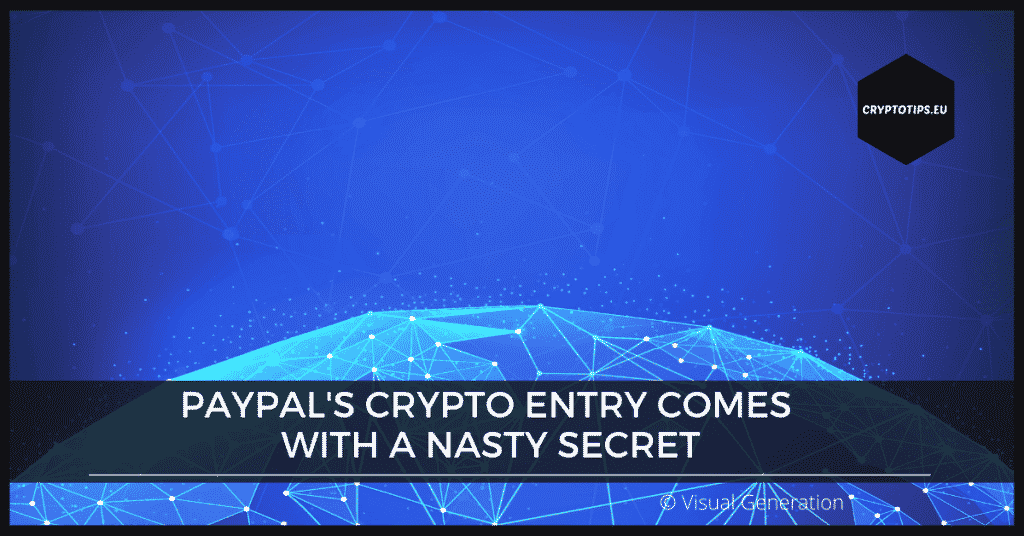Paypal’s Crypto Entry Comes With A Nasty Secret
Last Updated on 24 October 2020 by CryptoTips.eu
From time to time, the founders of companies such as Tesla, Linkedin, Palantir and Square still get together. When the group which features Peter Thiel, Elon Musk and Max Levchin is reunited, they are known as the Paypal Mafia as it was there that they made their first riches and their name in Silicon valley. There is a famous picture spread of them all in a Fortune magazine article from 2007 in which they all dressed as gangsters. The PayPal Mafia nickname has stuck ever since.
The original group counts three billionaires and various millionaires and is highly influential in the tech sphere of the world. Ever since the group left to pursue other ventures, PayPal has mostly been a market leader for others payment platforms like Venmo and Square, but recently the company decided to become a follower for once.
Square and Robinhood
When Square announced last week that it would invest directly into Bitcoin and put it on its balance sheet, this was an awakening moment for most in Wall Street that the water of cryptocurrency were safe to wade into.
#PayPal Is on the Market to Acquire Crypto Companies Including #BitGo
— BTCMANAGER (@btc_manager) October 24, 2020
BY: Evan Ezquerhttps://t.co/3a5qoO9ELl #Bitcoin #BTC #Cryptocurrency pic.twitter.com/OoWWRI8IcA
As both Square and popular trading app RobinHood made millions of dollars in profit this year through their Bitcoin and cryptocurrency services, it was clear to understand that others would follow for a similar motivation. And thus when PayPal announced last week that it would indeed enter the cryptosphere, many rejoiced. However, after reading the fine print, some are not too convinced anymore.
Satoshi Labs, the company that runs hardware wallet Trezor, explained that Paypal’s crypto entry comes with its sacrifices for users.
🔥Not your keys, not your coins🔥
— Trezor (@Trezor) October 21, 2020
You shouldn’t use PayPal for #Bitcoin https://t.co/J4Bd63u84Z
They said:
Users will not have the key to their own coins, while on the other they intend to “provide account holders with educational content to help them understand the cryptocurrency ecosystem”. The idea that anyone informed about bitcoin would agree to not holding their private keys might indicate that this educational content will overlook the fundamental rule: Not your keys; not your coins.
Satoshi Labs concludes by stating that although they welcome the news of PayPal’s entry into crypto, their advice is simple: Do not use PayPal for Bitcoin.
Already I wonder how the Paypal Mafia will react to this. Even though the new service doesn’t let you hold your keys and doesn’t let you deposit or withdraw funds, they stimulate the adoption of crypto to a whole new group of people. It will give crypto a better name when PayPal supports crypto.
